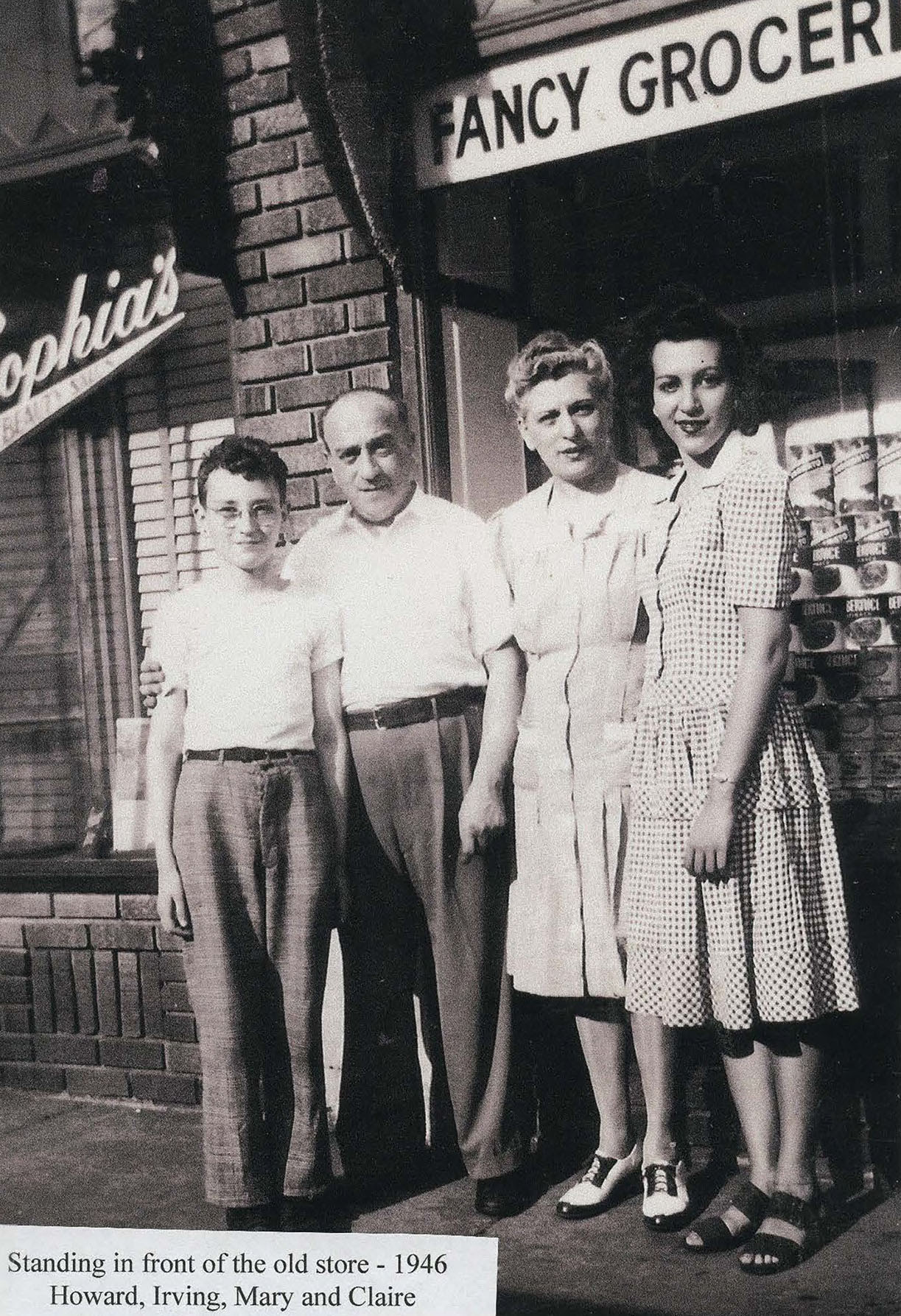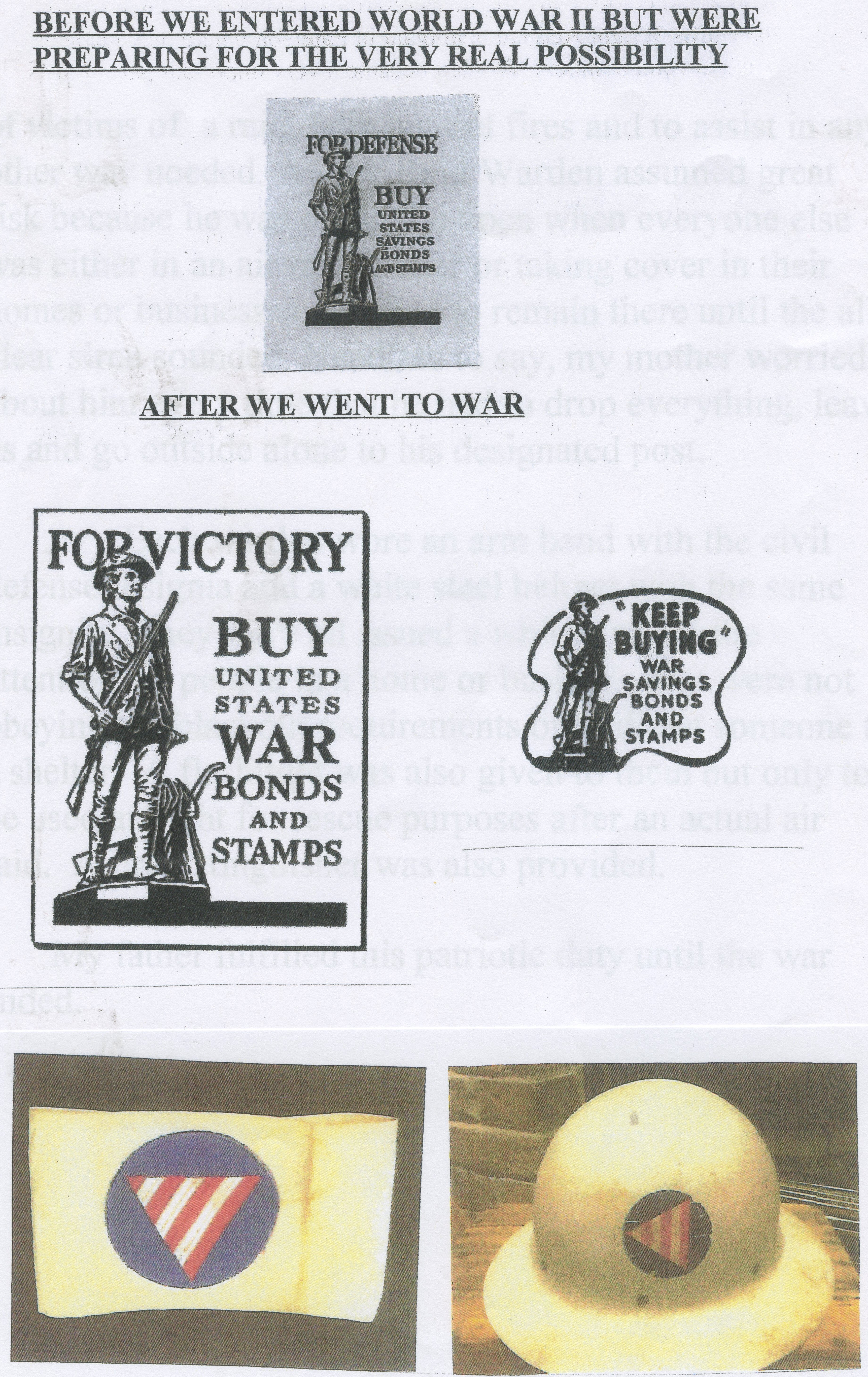The War on the Homefront During WW11
This piece is from the memoir that Howard Ebright created for his familly. The complete memoir is in the Ebright Family collection in in our JHSNJ archives along with other documents, photos, and objects of importance to the family.
While the armed forces were engaged in combat, the rest of the country did its part. Food, gasoline, rubber tires, and just about everything else had to be rationed. Cars were no longer manufactured. Certain appliances and other goods became extremely scarce because factories had been converted to the manufacturing of tanks, planes, and other military equipment. Awards were given to companies that exceeded expected production targets. Women became a very important part of the wartime labor force, replacing men who had gone to war. People worked night shifts because factories worked on a twenty-four hour-around-the-clock schedule.
Everyone collected newspapers, cardboard, tin cans, and scrap metal for the war effort. Our schools had “scrap drives” and we would pile what we had collected, pulling it to school in our little red wagons. Cooking fat waste was collected because it was used in making explosives. I remember how disappointed I was when we were told that our Paterson school, Number 6, collections helped pay for a single engine Scout plane and not a big B-17 Flying Fortress bomber. Every school had an air raid bell and we were taught what to do and where to go when it sounded. That was quite scary for a little kid. On certain designated school days I would bring nickels and dimes to school to purchase war savings stamps. I would paste them in our war bond stamp book. When it reached $18.75 you got a $25 war bond that matured in 10 years. I remember doing this and feeling very patriotic for helping to do my part.
My father, Irving Ebright, devoted one of the front plate glass windows of the store, Irving’s Dairy, on Graham Avenue, Paterson, to display defense material made by local companies, including a large section of an airplane engine made by the Curtis Wright Company. Wright’s, as it was called, was located at Madison Avenue and Getty Avenue, making Paterson a prime target for the enemy.
Before World War II, the United States issued bonds that were labeled Defense Bonds. Later renamed War Bonds after the 1941 attack on Pearl Harbor, the bonds helped the government raise $185 billion. Individual businesses and professionals placed ads in local newspapers to persuade their customers and clients to buy bonds. All government agencies, as well as a large number of corporations and businesses, printed the Buy Bonds logo on their stationery. The purchase of the bonds was largely linked to patriotism and people’s feelings of “doing their part” for the war.
The Post Office stamp cancellations read “Buy War Savings Bonds and Stamps” and it issued stamps commemorating the Armed Forces and a “Win the War” stamp.
Food, gasoline, rubber tires and many other necessities were rationed and could not be purchased without government-issued ration coupons or tokens, no matter how much people were willing to pay. There were severe penalties for violations. This was all done in an effort to help the war effort and insure that there was enough food and material for our troops.
Each family or person was issued a fixed number of coupons or tokens (points) that had to last until the next installment was given. As a kid, one of my jobs at the store was to place black price tabs on the front of the shelves holding the items and red ration tabs right next to it showing how many ration points were needed to be able to buy an item. This was all done in an effort to help the war effort and insure that there was enough food and material for our troops.
My father was not within the age group that was being drafted for military service, but because he was determined to do his part to help defend the country, he volunteered to become an Air Raid Warden. During World War II we were always on the alert for bombing by enemy planes. There were frequent blackouts and air raid drills. Blackout regulations required that all lights in homes be turned off or that all windows be covered by curtains, cardboard, or paint to prevent the escape of any glimmer of light that might aid the enemy. Street lights and traffic lights were shut off during blackout conditions. My mother and I were always worried when he was outside patrolling the neighborhood during these alarms, because we never knew if we were actually under attack or if it was just a drill.
The main job of an Air Raid Warden was to protect civilians, by patrolling the streets in his assigned area during an air raid alert and blackout to insure that no light was visible and directing anyone who could not get home to an air raid shelter. An Air Raid Warden assumed great risk because he was out in the open when everyone else was in an air raid shelter or taking cover in their homes or businesses. He had to remain there, on duty, until the all clear siren sounded. My father fulfilled this patriotic duty until the war ended.

Standing in front of old family store 1946, Howard, Irving, Mary and Claire.

Helmet and arm band worn by Irving Ebright, Howard’s father, while on patrol as an Air Raid Warden.
